Walking with Respect on Indigenous Land: Coastline Hosts Native American Land Acknowledgement Workshop
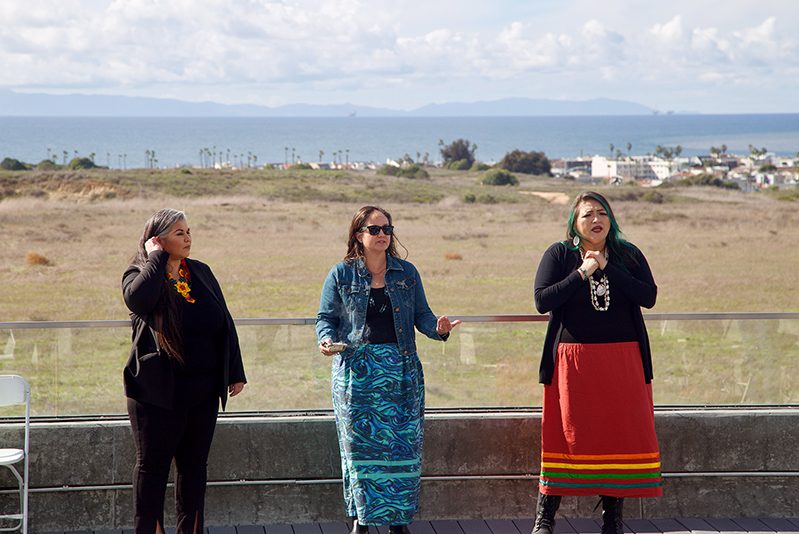
On Friday, November 21, 2025, clear skies welcomed students, faculty, staff, and community members to Coastline College’s Native American Land Acknowledgement Workshop at the Newport Beach Campus. The event focused on honoring Indigenous land and cultural stewardship.
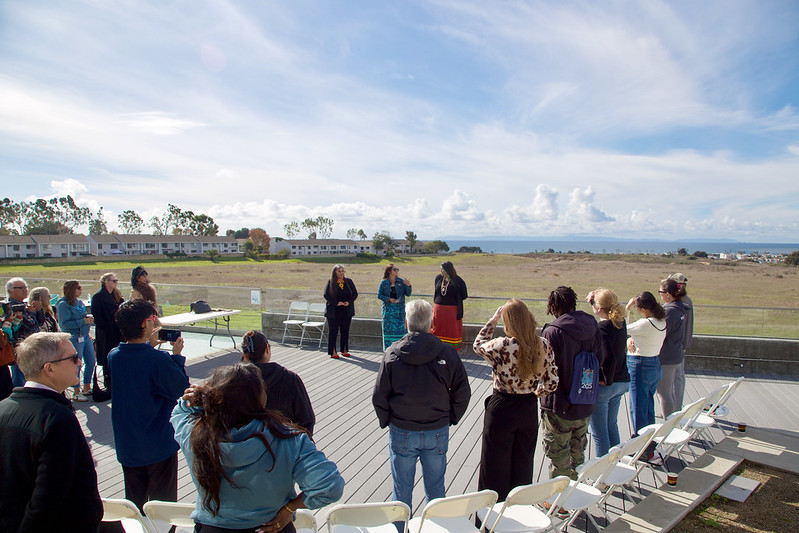
Honoring Place, History, and Community
The program began with a Sage Blessing by a member of the Gabrielino Tribe, honoring the land and people of this region. The blessing included a sage burning on the 2nd Floor Roof Deck, overlooking Catalina Island. The sage was used to cleanse the space of negative energy, invite positive intentions, and create a reflective environment for participants. Traditionally, burning sage is a practice rooted in many Indigenous cultures, serving as a spiritual cleansing ritual, a form of protection, and a way to connect participants with the natural and ancestral world. This opening ritual acknowledged the ancestral land on which the campus stands and set a tone of gratitude and mindfulness for the day’s activities.
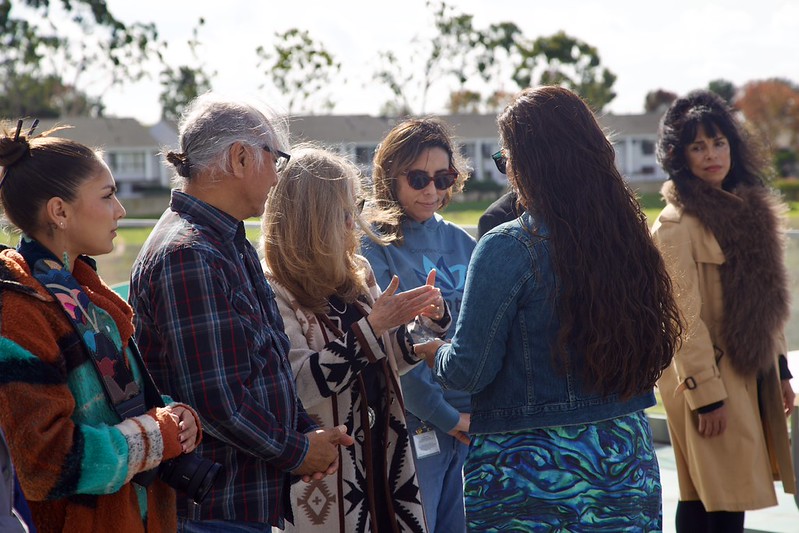
Following the blessing, participants moved to the Art Corridor across from the Newport Beach Art Gallery to continue the workshop in a space designed for learning, cultural exchange, and community connection.
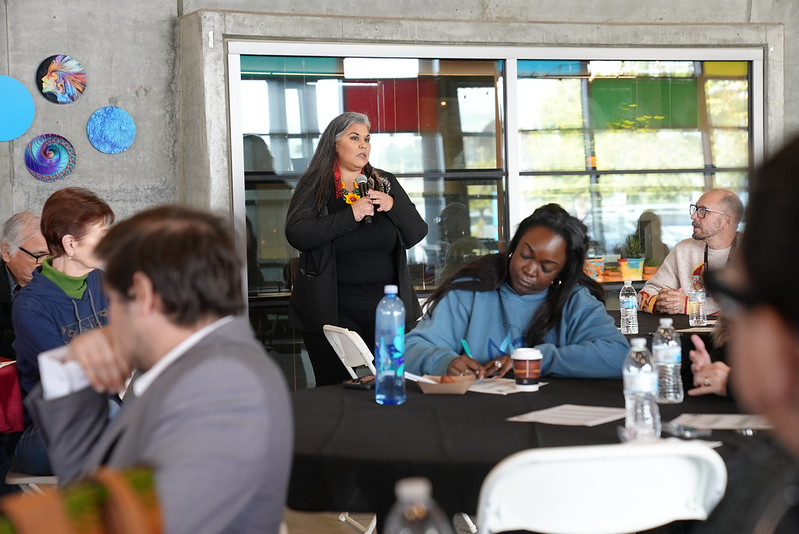
Learning from Indigenous Leadership
Dr. Primavera Reza-Nakonechny, Director of the First Peoples Native Center at Mt. San Antonio College, guided attendees through an in-depth exploration of Native American Land Acknowledgements. She explained their historical context, cultural significance, and contemporary practice.
Dr. Reza-Nakonechny emphasized that land acknowledgements are not just statements, but a first step toward moving from recognition to meaningful action and reconciliation. She guided participants on:
The importance of acknowledging Indigenous land and its historical and ongoing significance
How to craft respectful and meaningful land acknowledgement statements
Ways to move beyond acknowledgment into meaningful action
Practices individuals and institutions can adopt to support Indigenous communities
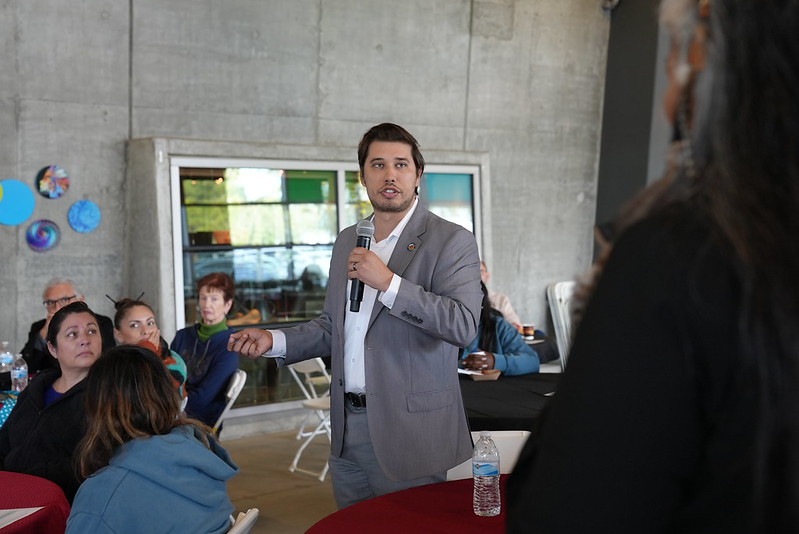
Community Reflections
The workshop deeply resonated with attendees and community partners. Robert LaBounty, representing Supervisor Katrina Foley’s Office (County of Orange), reflected on the importance of honoring Native Americans through local initiatives:
“I think a space, a monument, a plaque, a trail naming—something that honors Native Americans here at one of our county regional parks would be a great way to acknowledge their stewardship of the land and rebuild our relationship.”
Community member Alexis Henningsen highlighted Indigenous contributions to U.S. history:
“As December 7 approached, I wanted to take the opportunity to acknowledge the Navajo tribe for their contribution in bringing an end to World War II. Their language, used as an unbreakable military code, decisively contributed to the Allied victory and remains a profound example of Native American service and resilience.”
Campus Commitment to Equity and Respect
Presented by Student Equity and Title IX, the event reinforced Coastline College’s commitment to cultural awareness, educational equity, and honoring Indigenous voices. Participants left equipped with tools to “walk with respect” on Indigenous land, combining intentional reflection with informed practice.
The workshop welcomed both in-person participants and remote attendees via Zoom, creating an inclusive environment for all. The session concluded with a strong reminder of the responsibility shared by everyone who lives, studies, and works on Indigenous land.